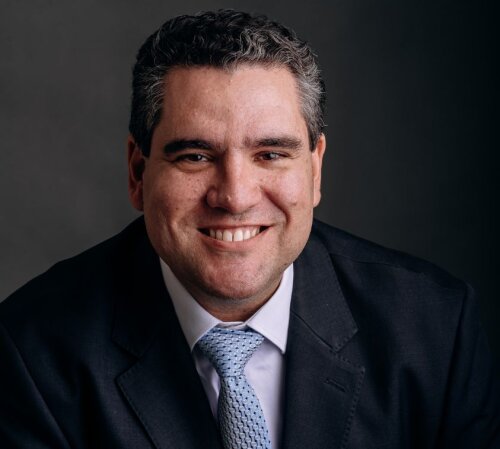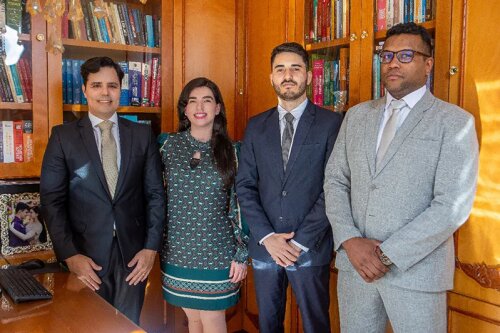Best Elder Law Lawyers in Brazil
Share your needs with us, get contacted by law firms.
Free. Takes 2 min.
Or refine your search by selecting a city:
List of the best lawyers in Brazil
About Elder Law in Brazil
Elder Law in Brazil encompasses a broad range of legal issues affecting older individuals. It aims to ensure the protection of the rights and interests of the elderly, addressing their specific needs in health, finance, and personal well-being. The legal framework includes statutes on healthcare, retirement, social security, housing, elder abuse, guardianship, and estate planning. The key legislation in Elder Law in Brazil is the "Estatuto do Idoso" (Statute of the Elderly), which establishes various civil rights for individuals aged 60 and over. This statute provides guidelines for governmental policies aimed at fostering inclusive and protective environments for the elderly population.
Why You May Need a Lawyer
Individuals may require legal assistance in Elder Law for various reasons. Common situations include issues related to retirement benefits, where legal advice is needed to secure appropriate pension distributions. Health care decisions, including accessing special health services and securing coverage for long-term care, often involve navigation through complex regulations, requiring professional guidance. Cases of elder abuse-whether physical, emotional, or financial-often necessitate legal intervention to ensure protection and justice. Additionally, estate planning, including the drafting of wills and establishing trusts, often requires professional legal input to ensure wishes are properly documented and enforced. Seeking legal assistance ensures that elderly individuals' rights are protected, and their needs are met in a lawful and effective manner.
Local Laws Overview
Brazil's local laws regarding Elder Law are primarily outlined in the Estatuto do Idoso, which underscores the rights of older adults to live with dignity and participate in family and community life. Key aspects include priority in receiving public services, free and preferential transportation options, and measures against discrimination in employment and health services. The statute also strengthens penalties against those who exploit older adults. Additionally, there's an emphasis on the inclusion of older persons in social programs and accessible healthcare services. Guardianship laws protect older individuals who may not be able to manage their affairs, ensuring necessary legal mechanisms are in place for their assistance.
Frequently Asked Questions
What is the age defined as "elderly" in Brazil?
The age defined as elderly in Brazil is 60 years and above, as per the Estatuto do Idoso.
What rights do elderly individuals have regarding public transportation in Brazil?
Elderly individuals have the right to free access to public transportation within urban areas. Cities with public transport systems must reserve a minimum of two seats for the elderly.
Are there specific laws against elder abuse in Brazil?
Yes, elder abuse is explicitly covered under the Estatuto do Idoso, which includes provisions against any form of neglect, violence, or exploitation of the elderly.
Can elderly individuals claim priority in healthcare services?
Yes, elderly individuals are entitled to priority care in public and private healthcare services, along with preferential treatments, examinations, and consultations.
What legal provisions exist for the financial exploitation of elders?
The Estatuto do Idoso includes strict penalties against financial exploitation, including utilizing the elder person’s income or assets without consent.
How is housing for the elderly addressed by Brazilian law?
Brazilian law mandates that government programs ensure housing options take into consideration the accessibility needs of the elderly.
What is the procedure for establishing guardianship in Brazil?
Establishing guardianship involves a legal procedure in family courts where a guardian may be appointed to manage the affairs of an elderly person deemed incapacitated.
Is there assistance available for elderly individuals who cannot afford legal services?
Yes, various governmental and non-profit organizations offer free or reduced-cost legal services to assist elderly individuals who are financially disadvantaged.
Are there laws supporting elderly employment in Brazil?
Yes, the law prohibits discrimination based on age in employment, encouraging retention and hiring practices that include elderly individuals.
What are the penalties for disregarding the rights of the elderly in Brazil?
Violations of the rights of the elderly can result in severe fines and potentially imprisonment, depending on the severity and nature of the offense.
Additional Resources
Several resources and organizations can provide assistance in Elder Law. These include the Ministério dos Direitos Humanos (Ministry of Human Rights) which provides policy guidance and the Defensoria Pública (Public Defender's Office), offering legal support to those in need. NGOs such as "Procon" provide consumer protection for the elderly, and organizations like the "Conselho Nacional do Idoso" advocate for elder rights and policy development.
Next Steps
If you require legal assistance in Elder Law, consider consulting a specialized elder law attorney to discuss your specific situation. Start by gathering all relevant documentation and details about your case. You may also contact the Public Defender’s Office in your city for guidance on available resources and possible assistance. Lastly, engage with local community groups or legal aid societies that can provide support or direct you to appropriate professionals familiar with the Elder Law landscape in Brazil.
Lawzana helps you find the best lawyers and law firms in Brazil through a curated and pre-screened list of qualified legal professionals. Our platform offers rankings and detailed profiles of attorneys and law firms, allowing you to compare based on practice areas, including Elder Law, experience, and client feedback.
Each profile includes a description of the firm's areas of practice, client reviews, team members and partners, year of establishment, spoken languages, office locations, contact information, social media presence, and any published articles or resources. Most firms on our platform speak English and are experienced in both local and international legal matters.
Get a quote from top-rated law firms in Brazil — quickly, securely, and without unnecessary hassle.
Disclaimer:
The information provided on this page is for general informational purposes only and does not constitute legal advice. While we strive to ensure the accuracy and relevance of the content, legal information may change over time, and interpretations of the law can vary. You should always consult with a qualified legal professional for advice specific to your situation.
We disclaim all liability for actions taken or not taken based on the content of this page. If you believe any information is incorrect or outdated, please contact us, and we will review and update it where appropriate.
Browse elder law law firms by city in Brazil
Refine your search by selecting a city.
















